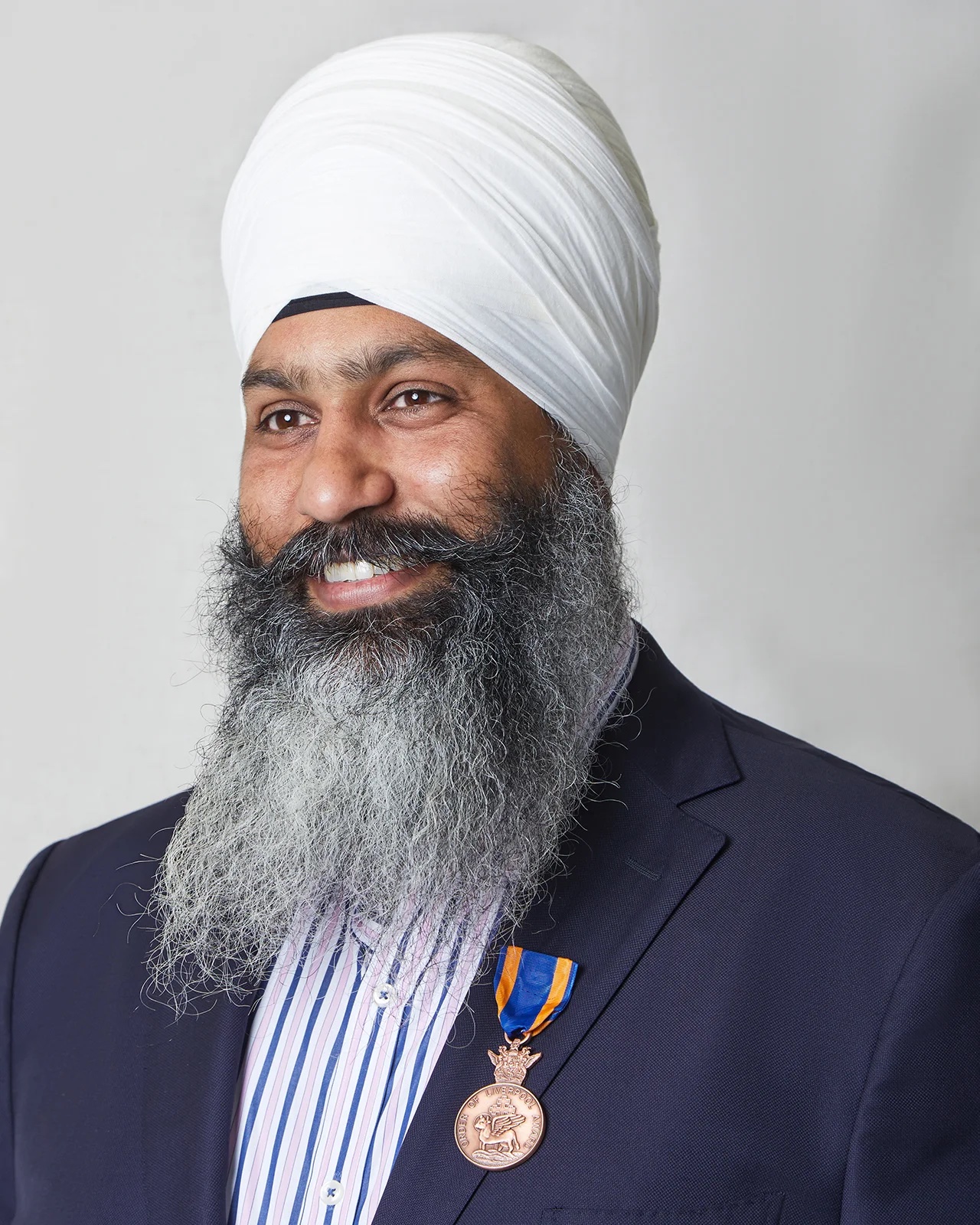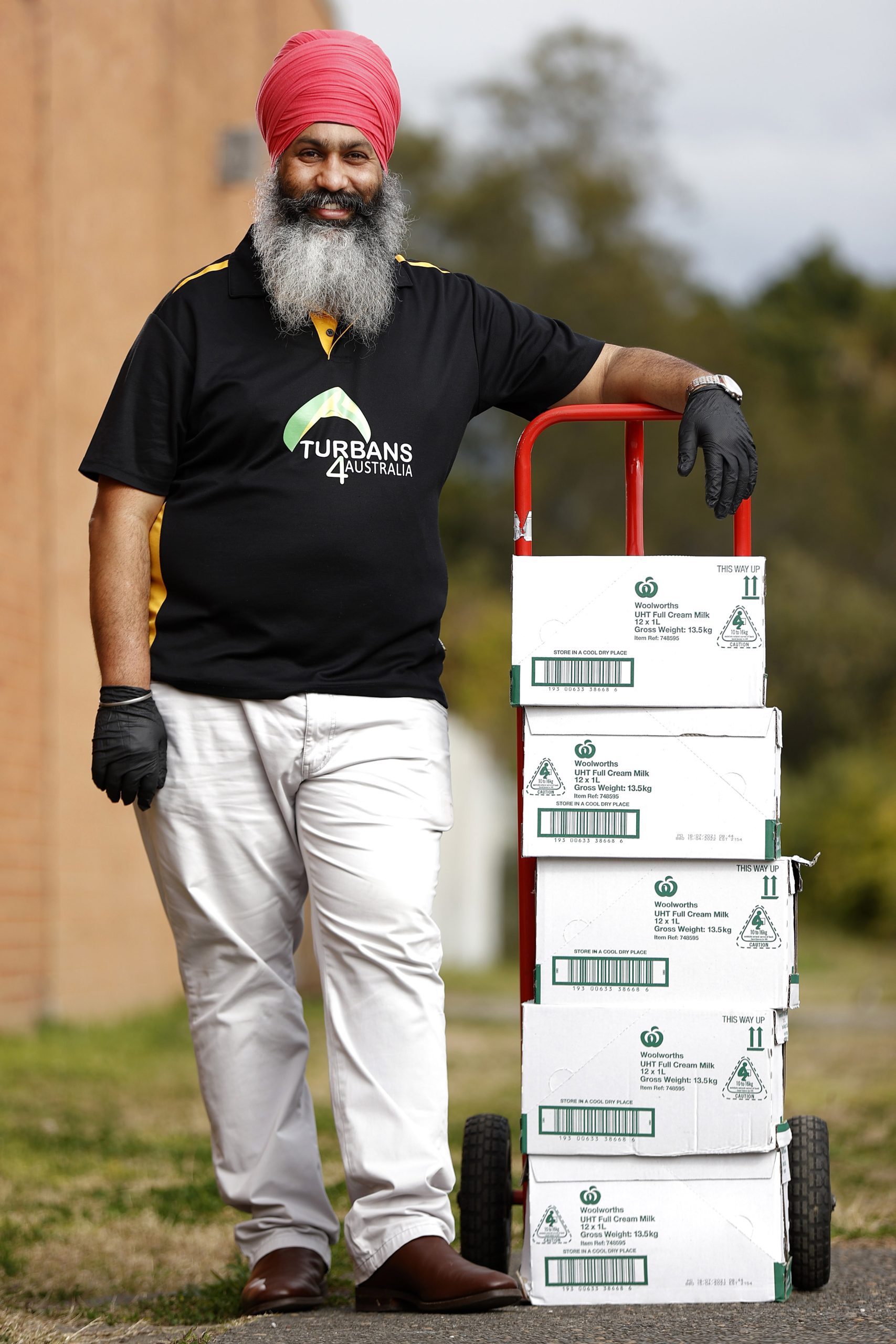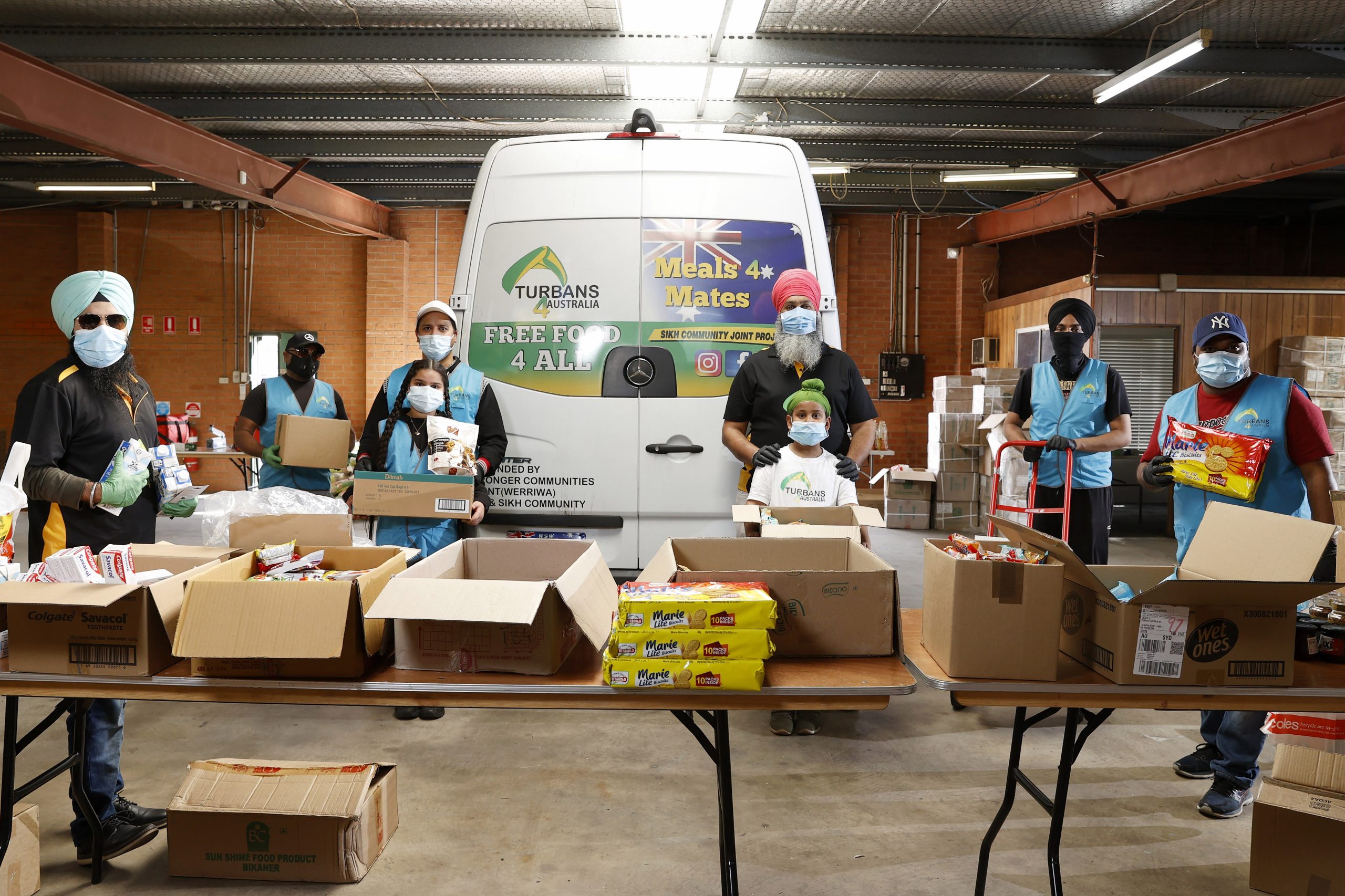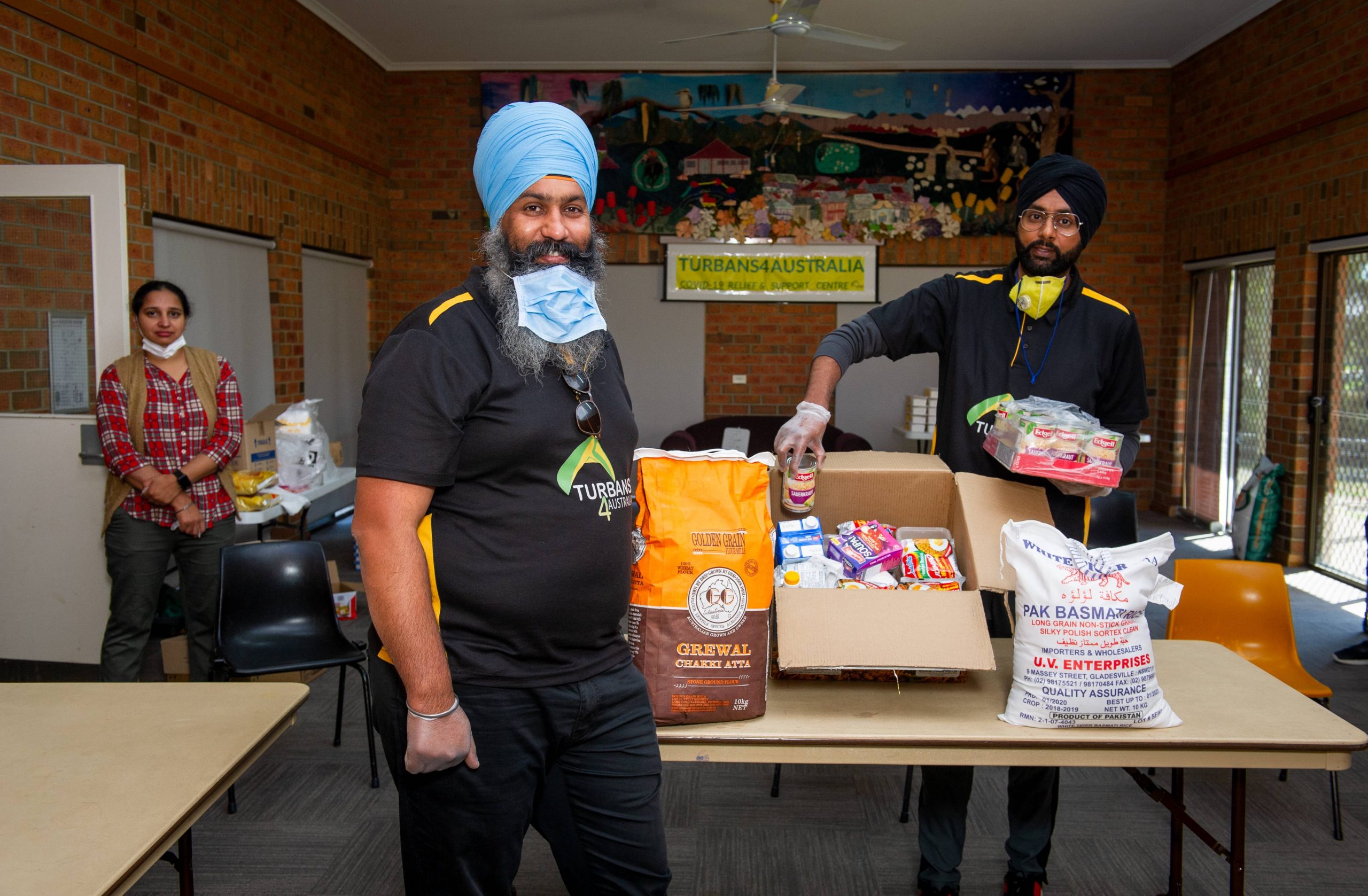(November 29, 2022) Australians still remember the Black Summer bushfires of 2019 that destroyed 24 million hectares across the country, including New South Wales. At a time when the government and locals came together to help, a non-profit, Turbans 4 Australia, spearheaded by an Indian-origin Sikh, was among those who jumped into action to deliver food, water and groceries to New South Wales’ South Coast throughout the bushfire season. For an organisation that was launched just four years prior, founder Amar Singh did everything possible to serve the locals in their darkest time.
“From 2015 to 2019, it was a slow start for Turbans 4 Australia as I was busy running my business simultaneously. However, it was after the 2019 bushfires that Turbans 4 Australia really took off, and we haven’t stopped since then,” says Singh, whose nonprofit has supported the community during floods, bushfires and the pandemic. His untiring work for the people of the country helped him win NSW Australian of The Year award 2023 – which he calls a “huge honour.” “This achievement is a milestone for us,” says Amar as he connects with Global Indian from Prestons.

Amar Singh is the founder of Turbans 4 Australia
A new country and a new culture
It was right after finishing Class 10 that Singh and his family boarded his first flight to Australia in 1998. Coming from a farming background in Nabha district of Punjab, the family relocated to a new country for a better life. However, the shift wasn’t easy for the then 15-year-old who had to leave behind all his friends for a “new country with no friends.” “There was no Facetime or WhatsApp back then. A 21-minute calling card would cost 20 AUD. For three years, I wrote letters to my friend Karamveer, from close friends, we had become pen pals. I missed the comfort of my life in Punjab,” he reminisces with a smile.
While the sentimental value of the known kept him rooted to his past, moving continents was a “cultural shock” for Amar as the high school environment was “totally different” for him. “I grew up listening to the commands from our teachers. But when I stepped in school here, it was very open. We could attend or bunk classes, or interact with our teachers,” he says.
Singh went onto study aircraft maintenance engineering in the early 2000s, which later landed him a government job. But he was keen to start something of his own, and in 2004, he launched his trucking company – something he’s still at, along with Turbans 4 Australia.

Amar Singh won the Australian of the Year award 2023 for helping Aussies in need.
His brush with racism
While the nonprofit took shape in 2016, Singh’s first brush with racism happened within his first month in Australia. “I got into a fight in the first month in school, and was suspended. Students would bully me, directly or indirectly,” reveals Singh, adding that he was the only Sikh in his school at that time. “I was the only person of this skin colour and religion. It took me a lot of time to fit in, and initially, it was disheartening.”
“There was one girl who was Indian but she was born in Australia, so it was easy for her. I knew English but didn’t have the Australian accent. She had friends while I had lost my support system,” recalls Singh who says that things have changed for the better in the last eight-ten years. “Australia as a society has changed. People have become accepting of multiculturalism. Now we have Diwali celebrations in the country. During Baisakhi and Gurpurab, the prime minister now sends good wishes. Earlier, this wasn’t the case. The narrative is now changing.”
View this post on Instagram
Turbans 4 Australia is just seven-year-old nonprofit, but Singh’s interest in charity dates back to his teenager days. “I was always involved as a volunteer during my school days – be it for a fundraising for cancer or working for the disabled. In fact, I was the only Sikh volunteer at the 2000 Sydney Olympics,” reveals Singh. However, like every other migrant, he got busy with his business as he had to “pay the bills.”
Changing the perception
Singh was often subjected to racial slurs. From being called a terrorist to meeting the suspicious eyes of locals who would ask what he was hiding in his turban, Singh found it hard to fathom how his religion could be a threat to anyone. That’s when he decided, “enough is enough” and that the time had come to take the reins in his hand. He wanted Australians to see Sikhs as people who could be trusted in times of need and at the same time, “wanted to encourage new arrivals from India to be a part of the local community.” What began as a committee of five-seven people have now extended to hundreds of volunteers who have been working tirelessly to help the locals. “Turbans 4 Australia helps Sikhs acknowledge themselves as locals, and not as immigrants,” says Singh, whose nonprofit has over the years impacted hundreds and thousands of Australians.
View this post on Instagram
“Now people in small towns and countryside also know about Sikh community because of Turbans 4 Australia. When we carry truckloads of groceries in a town, they say Sikh community got the products. For us, it’s not about communities, it’s about serving mankind.” Singh is happy that his nonprofit has played a role in changing the perception of the Australians towards Sikhs, as “we don’t just consider ourselves as immigrants but we have taken the ownership of the country.”
It’s this work that has got Singh one of the most prestigious recognitions – the Australian of the Year Award. “Making it to the top four finalists among 1700 odd applicants, and then getting the award is no mean feat. With the award, we have definitely achieved a milestone,” says Singh who is currently busy with setting up another relief centre in Melbourne.

Amar Singh’s Turbans 4 Australia helps locals during the pandemic
“It’s a two-way street for us. We educate Australians about our community and how we are equally locals. And also, to spread the word that Australians are welcoming and accepting of multiculturalism.” Singh believes that the behaviour of a handful of people don’t dictate Australia. “Not all Australians are racists. I have seen things shift in the last few years,” says the Sikh volunteer who likes to unwind by playing with his kids and chilling with his friends. “It is a demanding work. It’s not just about reaching to the people in need at the right time. We have 20-30 hours of work beforehand where we have to procure the groceries or getting in touch with the right people. For us, the nonprofit is all about bringing the community together and celebrate,” signs off Singh.




